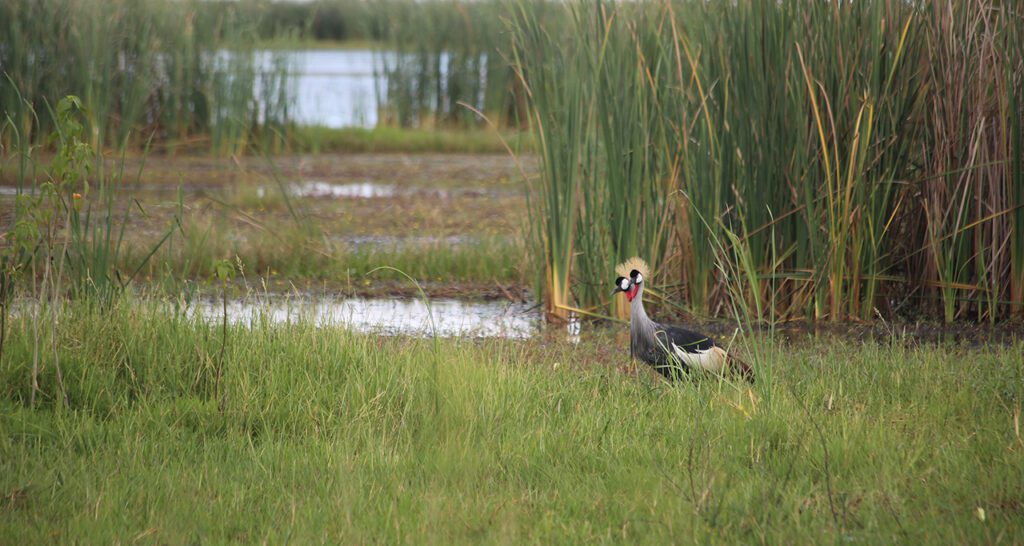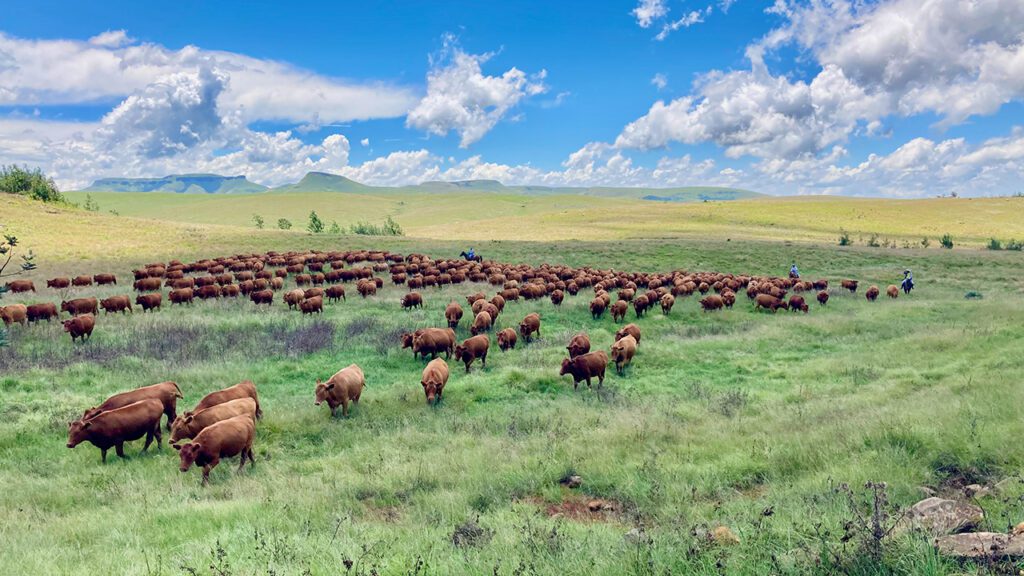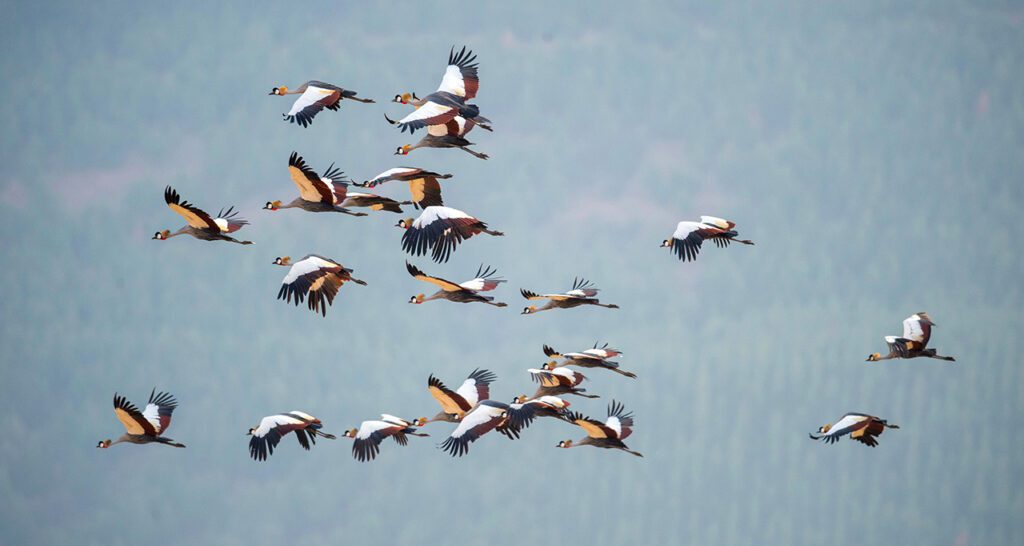International Crane Foundation Celebrates 12 Years of Community Conservation in Rwanda’s Rugezi Marsh
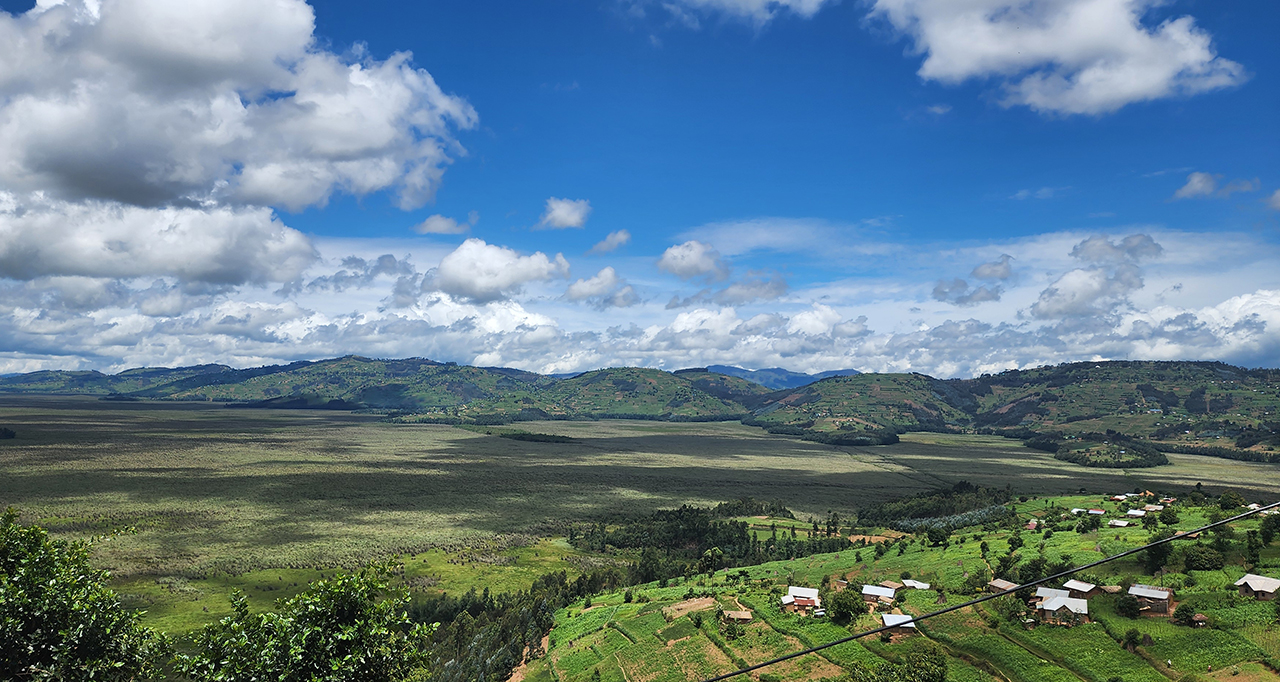
May 27, 2025 – Rwanda – A partnership that started 12 years ago to protect Rugezi Marsh and cranes under threat in Rwanda has become a model community conservation project fully aligned with the region’s planning and vision for this important wetland.
Earlier this month, the International Crane Foundation, along with government officials, partners, universities, and others, celebrated the project’s past successes and introduced future conservation plans – including the Foundation’s registration as an authorized international NGO in Rwanda and a new office space in Kigali.
Initially launched in 2012, the hosting agreement with Kitabi College of Conservation and Environment Management, the International Crane Foundation, and the Endangered Wildlife Trust was established to protect cranes and biodiversity in the wetlands of Rwanda.
“These wetlands were under severe threat of being degraded or lost as a result of encroaching agriculture and unsustainable use of resources,” said Charles Kayijamahe, International Crane Foundation’s Rwanda Country Manager. “We understood this ecosystem had great value and in order to protect it, we had to first understand the issues and then collaborate with communities and national decision makers to ensure it was sustainably managed.”
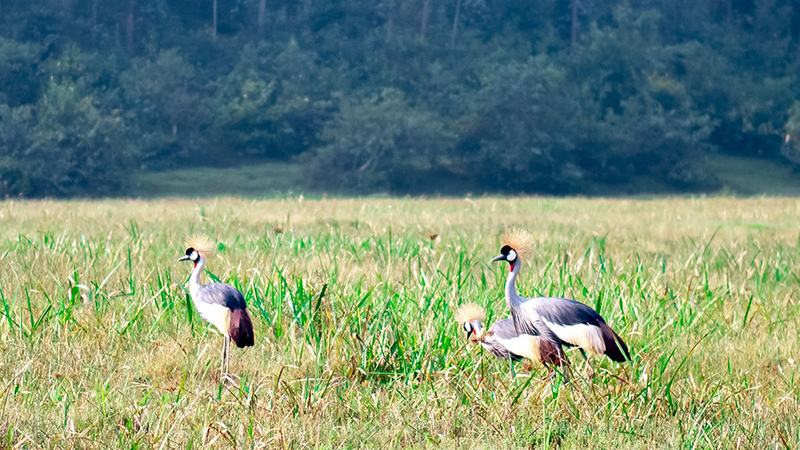
As the work progressed, the primary focus became Rugezi Marsh, a biodiverse wetland which supports more than 40 resident birds, including 20 percent of the country’s population of Endangered Grey Crowned Cranes and other vulnerable species. More than 300,000 people depend on the 15,800-acre (6,785 hectare) marsh, as it provides water, fodder for livestock, and materials for construction and crafts. Rugezi is also a water source for three downstream hydropower stations.
Goals included policy and conservation management of the Marsh, as well as agriculture and peat assessment. The first socio-economic baselines were established, and an awareness and education campaign began in the communities surrounding Rugezi. One of the biggest issues involved finding sustainable and resilient livelihoods for residents so they did not have to use the wetland to support their families. Monitoring the health and well-being of the cranes that depend upon the wetland to nest and breed was also a critical component of the project.
The Foundation also learned the communities had high expectations regarding the project’s benefits and managed those expectations through transparent and ongoing communications. The result was more than 105,000 individuals and 21,000 households were reached since 2017.
Through this partnership:
- More than nine million Napier Grass cuttings were distributed to 14,500 households
- More than 30,000 avocado seedlings were distributed to 5,600 families
- More than 23,000 fruit seedlings were distributed to 120 families
- More than 800 cooking stoves were distributed to 400 families
- More than 600 mattresses were distributed to 200 families
- Additionally, training, and mushroom huts and tubes, were provided for mushroom farming.
Planning for the next 10 years includes providing an even deeper impact to support community initiatives and make a real impact for cranes.
“We are determined to strengthen our partnerships and scale up all of the project work that has shown real impact for cranes, communities, and Rugezi Marsh,” said Kayijamahe. “Our biggest challenge is funding, but we have strategies to work with organizations and individual donors to make a real difference.”
For now, the community planning and support continue.
Top photo: Aerial view of Rugezi Marsh and surrounding communities. Charles Kayijamahe/International Crane Foundation
